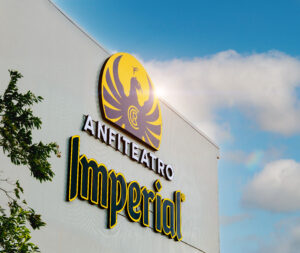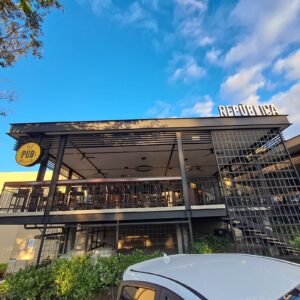- More than 2.5 million bees that pollinate 70 hectares of tropical dry forest in Guanacaste are being protected.
- The initiative seeks to develop more resilient bees with greater pollination capacity.
- Miel de Reserva Conchal will participate in the 2025 London Honey Awards for its quality, flavor, and geographical origin.
May 2025. This week, as part of World Bee Day (May 20), FIFCO highlights the progress of its conservation and sustainable honey production initiative, the Reserva Conchal Apiary, which protects and improves the genetics of bees (Apis mellifera) while strengthening their role as key pollinators for biodiversity and food safety.
According to the Guía de plantas de importancia para las abejas en Costa Rica (Guide to Plants of Significance to Bees in Costa Rica), developed by the UNED’s School of Exact and Natural Sciences (2024), it is estimated that 60% of the country’s flowering plants (some 8,500 species) depend directly on bee pollination to complete their reproductive cycle. In ecosystems such as the tropical forests of Central America, these pollinators perform up to 95% of pollination in the upper stratum and nearly 50% in the understory, demonstrating their crucial role in forest regeneration, genetic resource conservation, and ecosystem stability.
The impact of bees transcends the environment, as they sustain processes vital to food safety and the well-being of human communities. In this context, the apiary located in Reserva Conchal, FIFCO’s hospitality division, exemplifies how applied science, conservation, and strategic alliances can be integrated to strengthen the pollinating role of these species and promote sustainable development in the territories and ecosystems where they live.
Since its creation in 2020, the project has evolved in a comprehensive manner. In 2024, a second, larger apiary was inaugurated within the Conchal Mixed Wildlife Refuge, and a new phase of the project began with an instrumental insemination laboratory and a beekeeping operating room equipped to control the genetic origin of queen bees and drones. This innovation seeks to develop more productive bees with greater disease resistance, better adaptation to the environment, and less aggressiveness, promoting their conservation and responsible management in inhabited areas.
Currently, both apiaries have between 50 and 60 hives, housing more than 2.5 million bees, which actively contribute to the pollination of more than 70 hectares of tropical dry forest, one of the most vulnerable and important ecosystems in the country. The density of hives and the scientific work behind their development allow for a balance between high-quality honey production, ecological conservation, and sustainable tourism.
“Pollination is an essential ecosystem service for food safety, conservation, and adaptation to climate change. With this project, we protect these insects that are essential for life, promote applied science, and foster sustainable development. We are proud to see how the honey produced in this environment is now participating in international competitions for its flavor, color, and quality,” explained Gabriela Meza, Sustainability Manager at Reserva Conchal.
The honey obtained at Reserva Conchal, under the management of Mieles Nicoyanas and in partnership with Blue Zones Nicoya, will be part of the 2025 London Honey Awards and stands out for its geographical origin, quality, color, and flavor. Part of the apiary is dedicated to evaluating the performance of genetically improved queen bees under controlled conditions, with the aim of maximizing productivity without compromising the health of the colonies or local biodiversity.
“This project reflects the union between technical knowledge and environmental commitment. At Reserva Conchal, together with Mieles Nicoyanas, we have developed apiaries that not only produce high-quality honey but also educate and strengthen the bond with the communities,” said Alexander Duarte, a beekeeper with more than 20 years of experience and responsible for the Reserva Conchal Apiary.
At the same time, FIFCO promotes an educational and community-based approach through the Simbiosis program, which has been running since 2017 in the Conchal Mixed Wildlife Refuge. This program has trained over 2,900 students from communities such as Brasilito, Matapalo, Portegolpe, and Huacas. Visits to the forest nursery, the meliponary, and the environmental classroom allow children to learn about the role of bees in pollination, their relationship with food safety, and the need to protect both native species and the natural environment.
The refuge’s meliponary, located next to the new environmental classroom project inaugurated in December 2024, is home to four species of native stingless bees: Mayan Melipona, pauper-slender stingless bee, mariola and Mexican-pitted stingless bees. The space was designed to raise awareness about the country’s diversity of pollinators and has become a key location for environmental education for schoolchildren and visitors, integrating practical and immersive experiences.
This project is an example of FIFCO’s commitment to expansive sustainability, a strategic focus that drives creative solutions through partnerships for the well-being of the planet and humanity. We invite you to learn more about this and other projects in the company’s 2024 Integrated Report, available at fifco.com.


